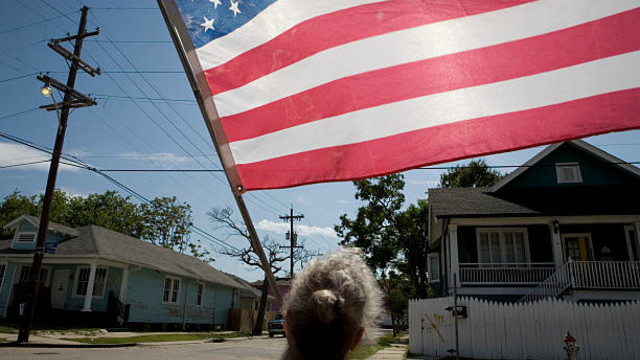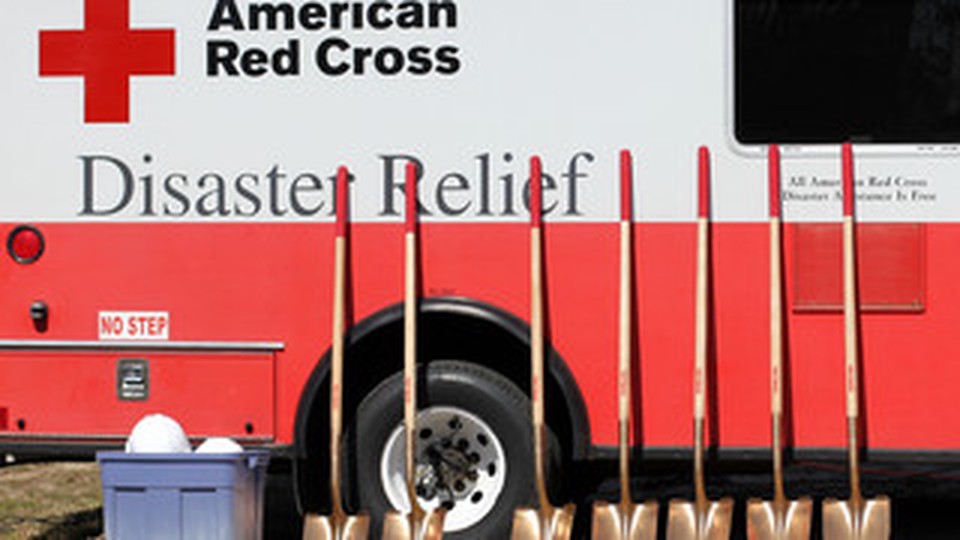What impact will you make?
Interested in learning more about Tulane University’s School of Social Work?
Disaster and Collective Trauma Focus Area
Key Dates and Deadlines
Early Submission Deadline: October 1
Priority Deadline: November 1
Final Submission Deadline: December 5
Focus Area Overview
Disasters can strike unexpectedly, dramatically affecting households and families. Tulane University’s online/on-campus Master of Social Work (MSW) students have the opportunity to specialize their expertise to serve when the unthinkable happens. Students can choose to add a Disaster and Collective Trauma focus to their MSW degree. The Disaster and Collective Trauma focus area prepares aspiring social workers to treat the psychological consequences of these types of crises. As one of the few disaster mental health programs in the U.S., Tulane’s dedicated program equips students with the skills required to make a substantial change in their own communities, assisting individuals with overcoming the trauma associated with surviving disasters, large and small. Students who choose to pursue the Disaster and Collective Trauma focus area tailor their education to learn about issues specifically related to crisis intervention, disaster management, and treatment approaches for certain mental health issues. Through this program, MSW students will learn how to truly make a difference in the lives of survivors across the nation.
Focus Area Highlights

Students receive an exceptional education from a top-ranked institution at an unparalleled value.

The National Clinical Licensing Exam (LCSW) pass rate at Tulane is 87 percent, whereas the national average is 78 percent.

Students learn how to activate resilience among individuals and communities facing loss or adversity.

Students gain hands-on experience working in neighborhoods, health clinics, and crisis intervention settings.

Disaster and Collective Trauma Social Workers Help Others Move Forward
In 2016, natural disasters were responsible for displacing 1.1 million Americans. The curriculum for the Disaster and Collective Trauma focus area is designed to train future social workers to assist their local communities and learn from a course of study focused on disaster resilience and trauma studies. With over 100 years of experience training social workers, Tulane University is dedicated to exporting lessons on building communal resilience to help students improve the places they call home.
Why Pursue the Disaster and Collective Trauma Certificate
MSW students who focus on Disaster and Collective Trauma are uniquely positioned to help in times of crisis. Graduates of this program often go on to become leaders of crisis intervention teams, working with local organizations, governments, and local communities, impacting positive changes following a disaster. The Disaster and Collective Trauma focus area appeals to those seeking to become experts in human relations, managing resources and providing counseling to victims of trauma and disaster. Here is a closer look at how Tulane’s online Disaster and Collective Trauma focus area can equip students with the skills needed to help those in need:
- Social workers with mental health backgrounds help survivors begin the healing process.
- Social workers provide therapy and empower others and make a difference within their local communities.
- Students will become experts in human relations, managing resources, and helping communities develop the solutions required to support those in need.
- Students will learn valuable evidence-based and empowerment-related tools and techniques.
- Social workers with degrees in disaster and collective trauma provide crucial psychological and social support through clinical knowledge and intervention.
Curriculum
Students who choose to pursue the Disaster and Collective Trauma focus area immerse themselves in a curriculum that teaches them how trauma and its effects make themselves known in individual lives and communities, and how research and field-tested interventions can help promote healing. These students take specialized courses in:
- Crisis intervention
- Clinical treatment approaches
- Common and little-known mental disorders
We invite prospective students to review the coursework descriptions.
Flexible Curriculum Schedules
Designed with working students in mind, the MSW program offers flexible part-time and full-time curriculum schedules for on-campus and online students. Prospective students may explore sample curriculum schedules here.
Field Education
Every MSW student is also required to complete 948 hours of field-based education. This integral part of the degree program pairs each student with an organizational partner in the individual’s city or town to start getting on-the-ground experience working within the student’s own community. The fieldwork experience and the rest of the curriculum are mutually supportive so that students can get the most out of every piece of their time with Tulane.
Career Information
Students’ aspirations to give back to their communities take countless forms. Here are a few settings our graduates work in:

Disaster Response
City Resilience Planning


Consulting
Community Outreach


Homeless Shelters and Women’s Shelters
Hospitals

The Bureau of Labor Statistics projects an above-average growth of 16 percent in the demand for social workers by 2026.
Testimonials

Susan Looney, MSW ‘13
“My experience at Tulane has given me a valuable learning experience both inside and outside of the classroom. The combination of class and field experience has had a profound impact on my success as a professional social worker. Thanks to my classes and field placements at Tulane, I had the knowledge and experience to make a difference in my community.”

Timothy van der Veken, MSW ‘09
“My field education gave me the opportunity to apply my academic skills and philosophy in a real-world environment while still enjoying the careful guidance of my professors, classmates, and field supervisor. I learned to integrate my knowledge and values of community-centered work with the unique perspective of local social work professionals in practice.”
Why Choose Tulane
Founded in 1834 in New Orleans, Tulane University has nine schools and one college, and is a member of the Association of American Universities. Tulane also ranks as “very high research activity” according to the Carnegie Foundation for the Advancement of Teaching. The school has 8,452 undergraduates and 5,129 graduate students. Tulane University is accredited by the Commission on Colleges of the Southern Association of Colleges and Schools to award associate, baccalaureate, master’s, doctoral, and professional degrees.